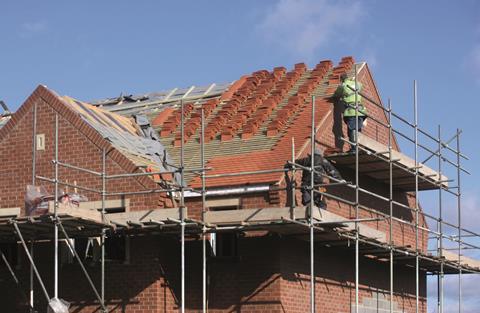Editor: Last week’s announcement of a pause to the biggest shake-up in the planning system in England for 70 years was unwelcome but not entirely unexpected.

Unfavourable comments from campaign groups, members of the public and some MPs had already indicated that the proposed legislation would encounter stormy seas in its journey through the Commons – and perhaps be sunk entirely.
However, the sad truth is that it will lead to a slowdown or even a halt in the construction of new homes in the near future. Uncertainty like this means housebuilders will sit on their hands because they simply don’t know what’s going to happen next.
What is certain is that things need to change. The problems with the planning system identified in the government white paper are still there. Everybody also agrees that we need to build more homes in this country. But while there’s a lack of decision-making about how exactly we do that, housebuilders will simply watch and wait. And while they wait, some new homes will simply not be built.
The current planning system is absurdly inefficient. It lets some local authorities off the hook when it comes to housing targets, and gives individuals a vast array of options when it comes to objecting. Of course, there’s also the danger that delays in removing obstacles to homebuilding will mean the prices of rentals will rocket.
New housing secretary Michael Gove is the most high-profile person to hold the post in years, and has a reputation as a radical reformer. We will have to wait and see whether he will usher in the winds of change in the industry and genuinely deliver what is needed, or instead opt for the sort of compromise that will leave housebuilding in this country languishing in the doldrums.
Richard Watkins, land and planning director, Aston Mead






























No comments yet